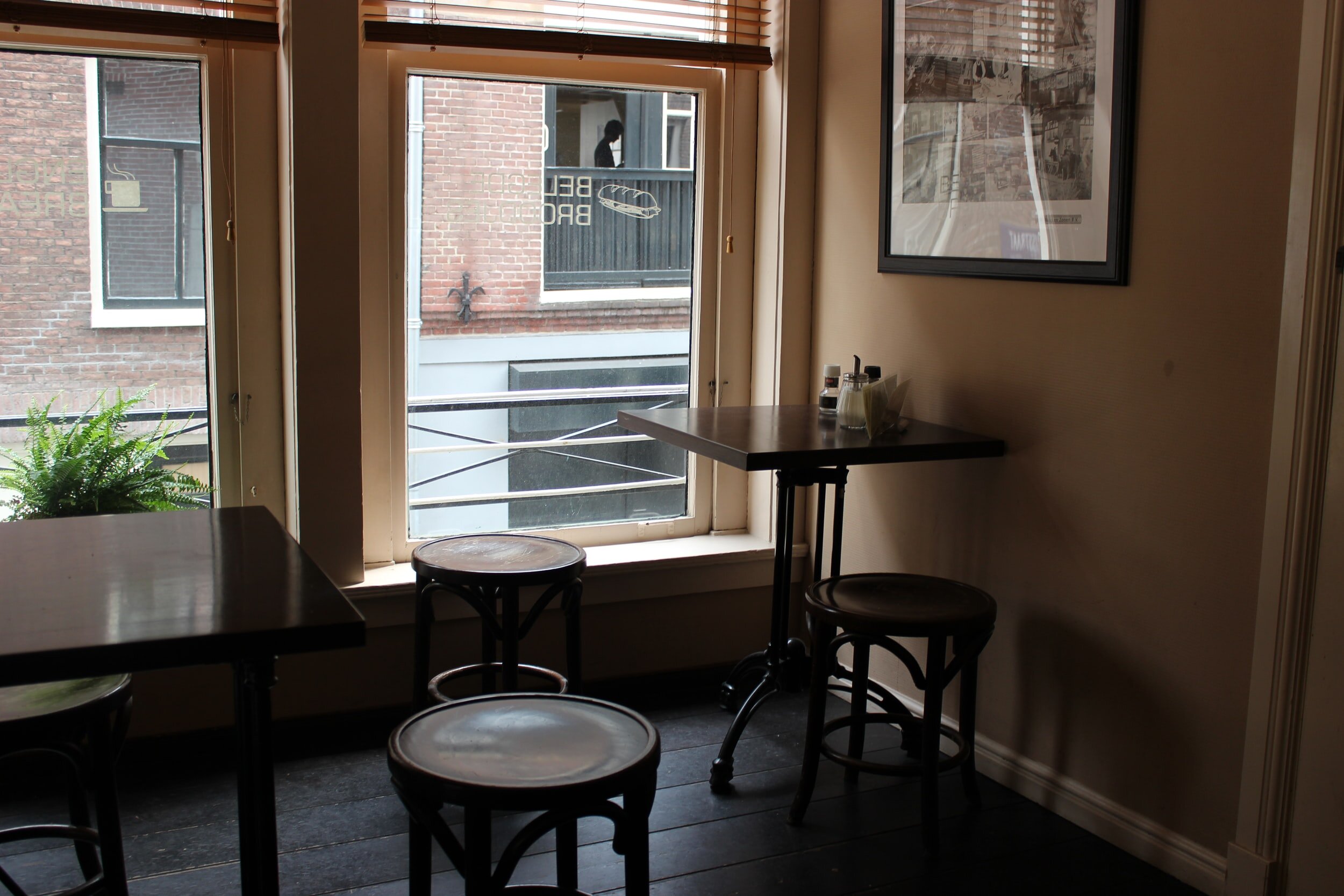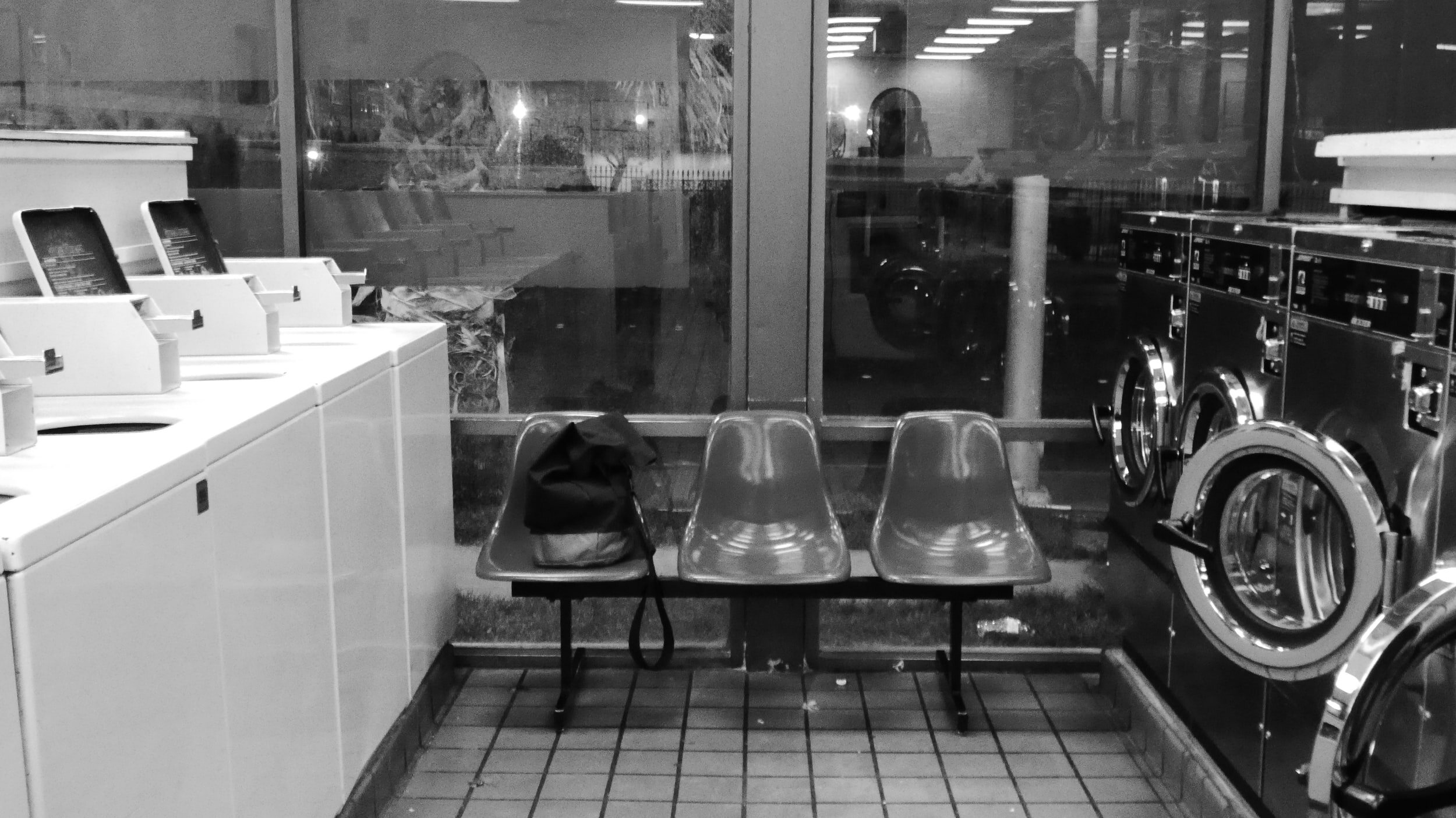An Overpriced Coffee Shop and Me
Photo credit: unsplash
For the first 18 years of my life, I grew up in rural Maryland, about an hour away from the Washington D.C. neighborhood where my great-grandparents settled once they immigrated to the United States. Building a new home in our nation's capital, my great-grandmother opened a laundromat in the city’s Chinatown. This tiny shop, nestled on the corner of Massachusetts Avenue, was where my grandmother later worked, where my father grew up, and where gentrification has recently turned the building into an overpriced coffee shop. Four generations later, I see myself in the renovated building that once harbored the foundations of my Chinese American heritage.
Growing up, I never saw my father’s side of the family as traditionally Chinese. My grandmother’s favorite foods are tomato-and-cheese sandwiches and cherry pie. Her native tongue is English, and her D.C. accent comes out every time she pronounces “Washington” as “Warshington.” My father, punished in elementary school for speaking what little Toisan he picked up at home, now only knows English. He watches football on Sundays and listens to country music on the radio during car rides.
What remains a century after my great-grandparents crossed the ocean to come to America lies within me, the product of four generations of cultural shame and assimilation.
Being socialized in a conventionally “American” way, I unknowingly rejected my own culture from a young age. Looking back, it is painful to see the intricate layers of my identity that I had shed to prove my American-ness to those around me. Sitting in the cafeteria in the sixth grade, I decided from then on to make myself peanut butter and jelly sandwiches every day for lunch instead of risking my peers calling my Chinese food "weird." Staring intently at my face in the mirror, I decided that my nose was too flat and round to be pretty, nothing like the slim, upturned noses of my blond-haired, blue-eyed friends. Sitting in the backseat of my mother's car, I decided I no longer wanted to attend Chinese school in fear of being seen as one of those Asian kids.
I was conditioned into being ashamed of my heritage and family history. Instead I assimilated into white American culture to feel able to succeed in this country—the same country that whitewashes history to the point where my roots are allotted one paragraph in a 1,000-page history textbook, the same country that turns my face into a token model minority to drive a wedge between communities of color, the same country whose leader fueled violent hate crimes against the Asian American community during a deadly pandemic. And yet, I still craved acceptance, burying my cultural identity underneath my peanut butter and jelly sandwiches, unaccented English, and colonized mind. But no matter how much of myself I erased, I was always seen as Asian first, American second, a foreigner in the only place I call home.
Untethered to my culture, I found myself free-falling, trying to navigate my way through the stereotypes and subtle racism that emanated throughout my majority-white hometown.
Without my roots, I could not stand up for myself when a stranger came up to me, bowed, and said, “Konichiwa.”
I stayed silent when my high school English teacher, noting how I do not have monolids, nicknamed me “Big Eyes” to differentiate me from the two other girls of East Asian descent in the class. I did not defend myself against classmates who laughed when they found out that I call my father “Baba” instead of “Dad.” Without my roots, it was easy to fall.
Every so often, I visit the little red brick laundromat-turned-coffee-shop, peering in from the sidewalk but never stepping foot inside. I watch as my family history is painted over with signs displaying menu items and prices, the scent of detergents long gone and replaced by that of earthy espressos, the sounds of women gossiping in Toisan faded into the whir of espresso machines. I watch as my family history is reduced, expunged, covered up, forgotten.
But my family history is not a laundromat. It is the way the sounds of exploding firecrackers dance in my ears every Lunar New Year, the way my grandmother hums old songs in the kitchen, the way we can never order enough fun guo at dim sum—it is my very existence. I can re-learn those parts of myself that I had tried so hard to unlearn. I can reconnect with the roots that give me the courage to stand tall and unwavering.
I am four generations of stories that tell of joy and sacrifice, resistance and rejection, fresh linens and roasted coffee beans, and I want to tell them all.


